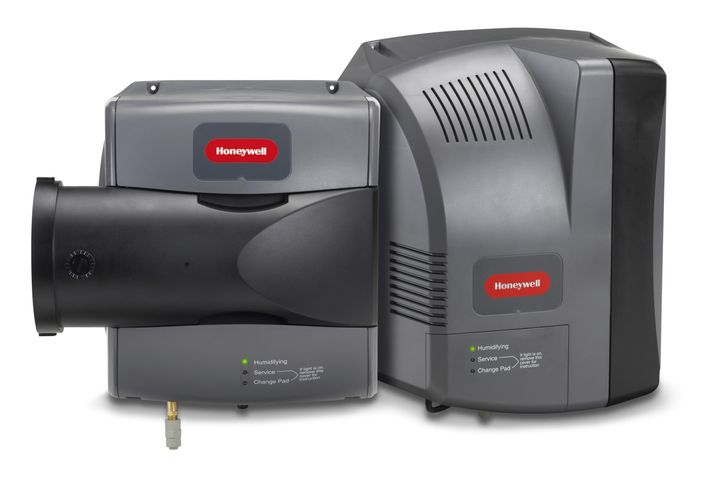Why Your Heater & Humidifier Go Hand-in-Hand During Winter... Click here to read more...

Even from the comfort of your home, winter can be brutal, thanks to the chilly, dry air that the season brings. During winter, many homeowners focus on warming up their indoor air without giving any thought to humidity levels.
Unfortunately, cranking up the heat in your home can leave your home environment feeling decidedly hostile. In fact, it’s not uncommon for people to experience dry/cracked skin, throat pain, respiratory problems, and other symptoms as a result of the cold winter air.
So how can you bring your home environment back to its usual balance? The key is to keep healthy levels of moisture in the air by using your humidifier virtually any time that you are using your heater or, better yet, just running your humidifier throughout the colder months.
Why Does Winter Air Need Humidifying?
Dry air becomes a noticeable problem in the winter because the temperature of air determines how much water vapor the air can hold. As temperature increases, water vapor capacity increases as well. The colder the temperature is, the drier the air must be, because of its reduced moisture capacity.
Using your heater exaggerates the problem because when you heat air, you are increasing its water vapor capacity, but you are not actually changing the moisture content. When air warms and its moisture content stays constant, the relative humidity of the air — which is a measure of the amount of water vapor present compared to the amount of water vapor that the air could hold — decreases, with the result being air that is warm but uncomfortably dry.
Why Is Dry Air Worth Worrying About?
Some people may believe that discomfort is the only drawback of dry air and that humidifying may not be worth the trouble. The truth, though, is that dry air may sometimes pose threats to both your health and your home. Dry air may lead to you experiencing some of the following symptoms:
- Dehydration
- Respiratory conditions, such as asthma and sinusitis
- Irritation of the skin, eyes, nose, and throat
Overly dry air can also dry out wood floors, as well as damage some of your possessions, such as paintings, plants, and instruments. Dry air does not have a beneficial effect on your heating bills, either — the “apparent temperature” of air, which is the temperature that you perceive, becomes colder as humidity decreases. Fortunately, humidifiers offer an easy solution to all of these issues.
How Does a Humidifier Work?
There are various types of humidifiers, all of which use different mechanisms to create moisture or moisturized air that can be introduced into your home environment. Essentially, all humidifiers work by pulling in air, adding moisture, and releasing the air to raise the relative humidity of the air throughout your home.
Humidifying Helps Your Home Environment
As you heat your air, its relative humidity drops and its dryness becomes increasingly apparent, although even relatively cold air will still feel dry because of its low moisture content. Using a humidifier in conjunction with your electric fireplace, portable space heater or other heat source can help restore a level of humidity that feels more natural and comfortable.
With an appropriate level of moisture in your home, you may even notice some of your uncomfortable symptoms start to fade away. It’s also not uncommon for you to save on your winter utility bills, since air with higher levels of water vapor will feel warmer than drier air at the same temperature.
Keep Comfortable All Winter Long
Dry air is an inescapable part of winter, and unfortunately, heating your home to a comfortable temperature will only make the issue more apparent. If you are concerned about your personal health, the comfort of your home, or maybe even your bills, then using your heater and humidifier in tandem is your best bet.
Call ADE Heating and Cooling Inc. for all of your HVAC needs!! **609-693-6050**
NJ Master HVACR Lic # 19HC00400200
NJ Master HVACR Lic # 19HC00136200
NJ Master Plumbing Lic # 36B100668500
About the Business
Have a question? Ask the experts!
Send your question

